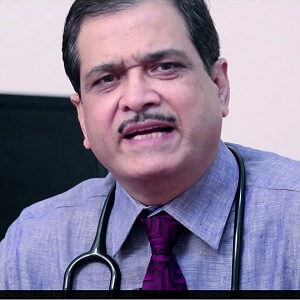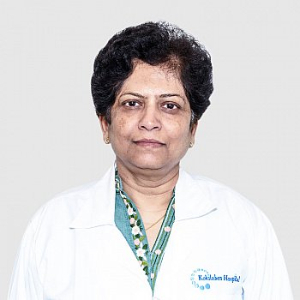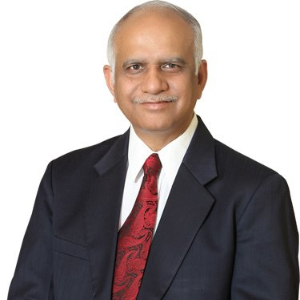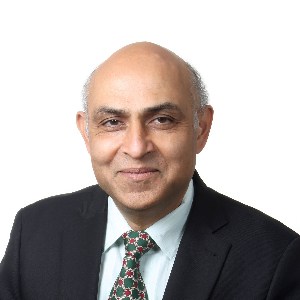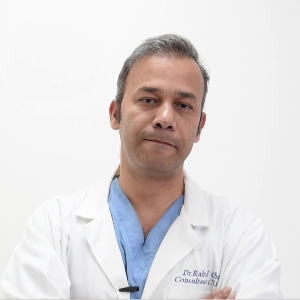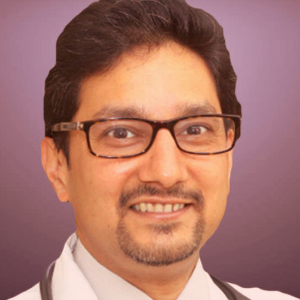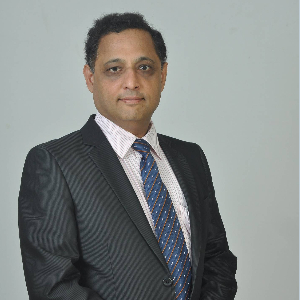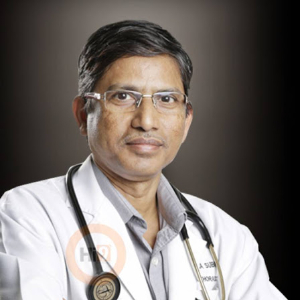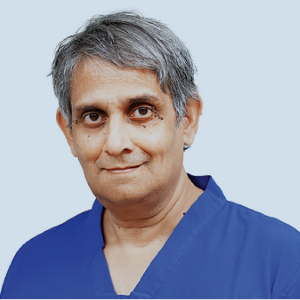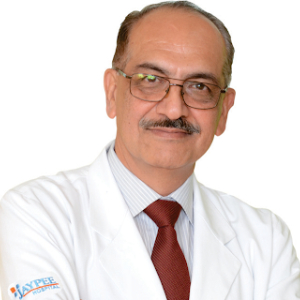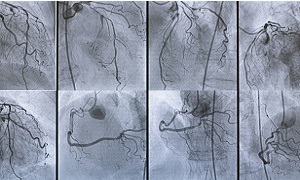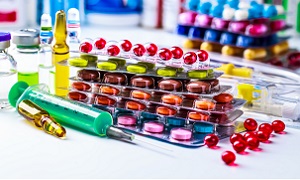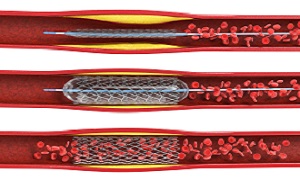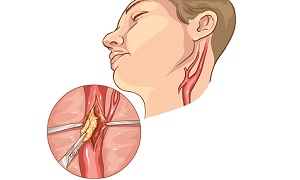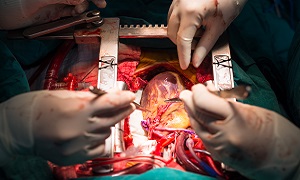Best Doctors in India for Atherosclerosis Treatment
- Interventional Cardiologist, New Delhi, India
- Over 26 years experience
Profile Highlights:
- Dr. Rajeev Kumar Rajput is one of the best Cardiologists in India with nearly 23 years of experience. He is a clinical cardiologist engaged in diagnosing and treating cardiovascular diseases.
- Dr. Rajput is currently working as a senior consultant with Indraprastha Apollo Hospitals, New Delhi, and also offers patient care at the Heart & Gynae Clinic.
- Dr. Rajeev Kumar Rajput specializes in Angiography and Interventional Cardiology. The treatments provided involve Neonatal and Infant cardiac surgeries, Device Closure, and Valve replacement. He has expertise in Aortic Aneurysm Surgery, Vascular Surgery, Percutaneous Coronary Interventions, Endovascular Repair, Cardiac Catheterisation, Open Heart Surgery, and MV replacement.
- Dr. Rajput is credited with publishing several papers in noted medical journals.
- Pediatric Cardiologist, Mumbai, India
- Over 20 years’ experience
Profile Highlights:
- Dr. Snehal Kulkarni is a renowned pediatric cardiologist who specializes in the management and treatment of fetal cardiac diseases, non-invasive pediatric cardiology, and Adult Congenital heart diseases.
- She is an expert in Diagnostic and Interventional Cardiac Catheterization, Stent implantation, Cardiac Pathology, and Balloon dilatation.
- She has more than 2 decades of experience in pediatric cardiology and has acquired her training from prestigious institutions in USA.
- Cardiac Surgeon, New Delhi, India
- Over 36 years’ experience
Profile Highlights:
- Dr. S. K Sinha is one of the top-most reputable cardiac surgeons in India who has performed over 10000 heart surgeries, 2000 minimal access cardiac surgeries cases and has 36+ years of rich experience.
- As one of the best cardiac surgeons in India, Dr. Sinha has both performed and taken lead as the administrative and clinical mentor in several cases where his supervision and mentorship paired with his vast knowledge have helped future cardiac surgeons shape their careers.
- Senior Consultant - Cardiology, Dwarka, New Delhi, India
- Over 35 years’ experience
Profile Highlights:
- Dr. Monik Mehta is one of the best interventional cardiologists in India for the implantation of heart failure devices.
- His specialization also lies in performing complex Angioplasties and complex coronary interventions.
- Having received his training from Mahidol University, Bangkok, Dr. Monik Mehta has also worked with the United Nations as a cardiologist in Cambodia.
- Currently, he works as a Senior Consultant – Cardiology, in Manipal Hospitals, Dwarka, New Delhi.
- Senior Cardiothoracic and Heart Lung Transplant Surgeon, New Delhi, India
- Over 23 years’ experience
Profile Highlights:
- Dr. Rahul Chandola is a renowned cardiothoracic and vascular surgeon in India specializing in Adult CTVS along with heart and lung transplant surgeries.
- He is an expert heart and lung transplant surgeon and has performed over 100 heart transplant surgeries with successful results in both adult and pediatric patients.
- Currently, he works as a Senior Cardiothoracic and Heart Lung Transplant Surgeon in PSRI Hospital, New Delhi.
- Interventional Cardiologist, New Delhi, India
- Over 20 years’ experience
Profile Highlights:
- Dr. Vishal Rastogi is a leading Interventional Cardiologist in Delhi specializing in Heart Failure Management.
- Dr. Vishal Rastogi has over 20 years of experience in the field and holds the credit for the largest number of Impella Left Ventricular Assist Device (LVAD) implants in critically ill patients in India.
- He has performed a large number of Coronary and Peripheral Angiographies and diagnostic cardiac catheterizations in both adult and pediatric patients among several other interventional cardiac procedures.
- Cardio Thoracic & Vascular Surgeon, Mumbai, India
- Over 30 years’ experience
Profile Highlights:
- Dr. Anvay Mulay is a well-known cardiothoracic and vascular surgeon in Mumbai and one of the best heart transplant surgeons in India.
- He holds an extensive experience of close to 3 decades and has been associated with renowned cardiac hospitals in India, US, and UK.
- Dr. Mulay is one of the top surgeons for Adult cardiac procedures in India. He was the first to introduce LVAD in West and Central India when he performed the surgery on a 49-year-old patient.
- Cardiothoracic & Vascular Surgeon, Hyderabad, India
- Over 30 years’ experience
Profile Highlights:
- Dr. G Rama Subramanyam is a well-known cardiothoracic and vascular surgeon who specializes in open-heart surgery and has performed more than 5000 such procedures since 1997.
- He is also an expert in Minimally Invasive Coronary Artery Bypass Grafting and heart valve surgeries that includes over 200 Ischemic mitral valve repair surgeries and 100 myxomatous and Rheumatic mitral valve repair surgeries.
- Heart Lung Transplant Surgeon, Chennai, India
- Over 40 years’ experience
Profile Highlights:
- Dr. K R Balakrishnan is a highly coveted cardiac surgeon in India and is probably one of the best heart transplant surgeons in the country.
- He has performed the largest number of heart transplants in the country including 180+ heart transplants, 23 lung transplants, and 9 heart & lung transplant procedures. He performed the first permanent artificial heart transplant in India with HeartMate II LVAD.
- Dr. K R Balakrishnan has over 40 years of experience in the field and has the expertise to perform cardiac surgeries on patients of all ages. He has performed over 16000 cardiac surgeries for various types of heart diseases and disorders till date.
- Cardiac Surgeon, Noida, India
- Over 30 years’ experience
Profile Highlights:
- Dr. Manoj Luthra is a highly experienced and renowned Cardiac surgeon who has 30+ years of experience and performed the first heart transplantation surgery in the Indian Armed Forces.
- Till date, Dr. Manoj Luthra has performed more than 12,000 cardiac surgeries including 8000 heart bypass surgeries. He has also performed many heart transplants and aneurysm surgeries.
Best Hospitals in India for Atherosclerosis Treatment
Jaypee Hospital, Noida
- City: Noida, India
Hospital Highlights:
- Jaypee Hospital is the flagship hospital of the Jaypee Group.
- This hospital has commissioned 525 beds in the first phase and has been planned and designed as a 1200 bedded multi-specialty facility.
- It holds the accreditation of the NABH and NABL.
- The hospital has state-of-the-art infrastructure equipped with the latest technologies and modern equipment like 64 Slice PET CT, Dual Head 6 Slice SPECT CT, Gamma Camera, and Da Vinci Robotic Surgery for comprehensive robotic surgical solutions.
- It has special Centers dedicated to the major specialties to provide hassle-free and high-quality clinical care.
Manipal Hospital, Dwarka, Delhi
- City: New Delhi, India
Hospital Highlights:
- Manipal Hospitals, Dwarka, is a super-specialty hospital in Dwarka, New Delhi, which is a part of Manipal Hospitals Group.
- The hospital aims to provide the best treatment on par with international standards at a fraction of the cost.
- Equipped with 380 beds, the hospital is also one of the new age hospitals which are equipped fully with state-of-the-art infrastructure, cutting-edge technology as well as the latest and advanced clinical practices. The hospital also has 13 modular Operation theatres with 118 beds which are solely meant for critical care.
- The hospital comprises internationally acclaimed doctors and highly professional and experienced hospital and medical staff who are able to provide preventive, therapeutic, and diagnostic services all under one roof.
Paras Hospital, Gurugram
- City: Gurugram, India
Hospital Highlights:
- Paras hospital was established in 2006 and is the 250 bedded flagship hospital of Paras Healthcare.
- The is supported by a team of doctors of international and national repute.
- The hospital is NABH accredited and also the first hospital in the region to have a NABL accredited laboratory.
- The hospital provides specialty medical services in around 55 departments including Neurosciences, Joint Replacement, Mother & Child Care, Minimal Invasive Surgery, Gynecology and Obstetrics, Ophthalmology, Dermatology, Endocrinology, Rheumatology, Cosmetic and Plastic surgery.
- The hospital is equipped with state-of-the-art technologies.
S L Raheja Hospital, Mahim, Mumbai
- City: Mumbai, India
Hospital Highlights:
- SL Raheja hospital is a 140-bed multi-specialty tertiary care hospital that is being managed by Fortis Healthcare Ltd.
- The hospital is a benchmark in healthcare and medical facilities in the neighborhood of Mahim & the western suburbs.
- L.Raheja Hospital, Mahim has one of the most effective ICU and Casualty care services.
- The hospital provides specialty medical services in Cardiology, Oncology, Neurology, Orthopedics, Mother & Child Care, and in Diabetes.
Wockhardt Hospitals, Mumbai
- City: Mumbai, India
Hospital Highlights:
- Wockhardt Hospitals were established in the year 1973, originally called First Hospitals and Heart Institute.
- Wockhardt Hospitals are super specialty health care networks in India, nurtured by Wockhardt Ltd, India’s 5th largest Pharmaceutical and Healthcare company.
- Wockhardt Hospitals is associated with Partners Harvard Medical International, an international arm of Harvard Medical School, USA.
- Wockhardt Heart Hospital performed India’s first endoscopic heart surgery.
- The hospital has a state-of-the-art infrastructure equipped with the latest technologies and modern equipment.
- It has special Centers of Excellence dedicated to the major specialties to provide hassle-free and high-quality clinical care.
Pushpawati Singhania Hospital & Research Institute, New Delhi
- City: New Delhi, India
Hospital Highlights:
- Established in 1996, Pushpawati Singhania Research Institute is one of the top hospitals in the NCR region, as well as one of the top facilities in India for gastroenterology. The hospital is one of South Asia’s first institutes in medical and surgical treatment for diseases related to digestion.
- The hospital is equipped with state-of-the art facilities coupled with the latest equipment as well as renowned consultants from various parts of India as well as other parts of the world.
Atherosclerosis
Atherosclerosis is a condition which causes the arteries to narrow and harden. This leads to your arteries getting blocked, putting your blood flow at risk. It is usually caused by the build-up of fats, cholesterol and other such substances in and on your artery walls.
Atherosclerosis is a type of arteriosclerosis, though the terms are used interchangeably sometimes. The plaque can burst, which can trigger a blood clot. Atherosclerosis is often considered a heart problem, but it might affect any part of your body. This condition is preventable as well as treatable.
Causes
Plaque buildup as well as subsequent hardening of the arteries leads to the blood flow in the arteries being restricted, which prevents your organs and tissues from getting the required oxygenated blood. Some common causes of this condition include:
- High Cholesterol- Cholesterol is a waxy, yellow substance that is found naturally in the body as well as in some foods you consume. When the cholesterol level in your blood is too high, it can lead to the clogging of your arteries. It becomes a hard plaque that restricts or blocks blood circulation to your heart as well as other organs.
- Diet- It is also quite important to eat a healthy diet. An overall healthy diet should include a wide range of fruits and vegetables, whole grains, dairy products with low fat, nuts and legumes, etc.
- Aging- As one ages, their heart and blood vessels work harder to pump as well as receive blood. Your arteries may weaken and become less elastic, which makes them more susceptible to plaque buildup.
Symptoms
Mild atherosclerosis doesn’t usually have any symptoms. Usually, symptoms occur only after an artery is so narrowed or clogged that it is unable to supply adequate blood to the organs and tissues. Sometimes a blood clot can completely block blood flow or it might even break apart and can trigger a heart attack or stroke. Symptoms depend on which part of your body is affected.
- If you have atherosclerosis in your heart arteries, you might show symptoms such as chest pain or pressure.
- If you have atherosclerosis in the arteries which lead to your brain, you might have signs and symptoms such as sudden numbness or weakness in your arms and legs, difficulty in speaking, temporary loss of vision in an eye or your face muscles drooping. These signal a transient ischemic attack and if it is left untreated, it might lead to a stroke.
- If you are having atherosclerosis in the arteries in your arms and legs, you might show symptoms of peripheral artery disease, like leg pain when walking.
- If you have atherosclerosis in the arteries which lead to your kidney, you can develop high blood pressure or maybe even kidney failure.
Diagnosis
Your doctor first performs a physical exam to check for signs of atherosclerosis. They will check if your pulse is weakened or if there are any signs of an aneurysm, which is an abnormal or widening of an artery due to weakness of the arterial wall, slow wound healing, which can indicate a restricted blood flow.
A cardiologist might listen to your heart to check if there are any abnormal sounds. They will be listening for a whooshing noise, which can indicate that an artery is blocked. Your doctor will be ordering more tests if they feel you might have atherosclerosis.
These tests can include:
Blood test
Doppler ultrasound
Ankle-brachial index
Angiogram
Stress test
MRA
Electrocardiogram
Treatment
Medications
There are various drugs that can slow or reverse the effects of atherosclerosis. Some common choices are:
- Cholesterol medications- These kinds of medications are used to lower the low-density lipoprotein cholesterol aggressively, as this may stop or even reverse the buildup of fatty deposits in your arteries. Boosting your high-density lipoprotein cholesterol can however help. Your doctor will guide you in choosing from a range of cholesterol medications.
- Beta-blocker medications- These kinds of medications are commonly used for coronary artery disease. They help in lowering your heart rate as well as your blood pressure and reduces the demand on your heart as well as relieving symptoms of chest pain. They can also reduce your risk of having a heart attack or heart rhythm problems.
- Anti-platelet medications- Your doctor might prescribe you anti-platelet medications like aspirin, to help reduce the likelihood that platelets will clump in narrowed arteries and form a blood clot which will even lead to further blockage.
- Angiotensin-converting enzyme (ACE) inhibitors- These medications might help to slow the progression of atherosclerosis by lowering your blood pressure and they also produce other beneficial effects on your heart arteries. ACE inhibitors can help in reducing the risk of recurrent heart attack as well.
- Calcium channel blockers- These medications can lower blood pressure can also be used for treating angina.
- Water pills (diuretics)- Diuretics can help in lowering blood pressure, as high blood pressure increases the risk of having atherosclerosis.
- Other medications- Your doctor might be suggesting some other medications to control specific risk factors for atherosclerosis, like diabetes.
Surgical procedures
Aggressive treatment can be needed sometimes to treat atherosclerosis. If you are having severe symptoms or a blockage that threatens muscle or skin tissue survival, you might be a candidate for a surgical procedure such as:
Angioplasty and stent placement
During angioplasty and stent placement, your doctor inserts a long and thin tube called a catheter into your blocked or narrowed part of the artery. A second catheter with a deflated balloon on its tip is next passed through the catheter to the narrowed area. Next, the balloon is inflated, compressing the deposits against the artery walls. To help in keeping the artery open, a mesh tube is usually left in the artery.
Endarterectomy
Fibrinolytic therapy
If you have an artery that is blocked by a blood clot, your doctor might use a clot-dissolving drug in order to break it apart.
Bypass surgery
Risk factors
Hardening of the arteries can occur over time. There are quite a few factors which can increase the risk of developing atherosclerosis, which includes:
- High blood pressure
- High cholesterol
- Obesity
- Diabetes
- Smoking and using any such tobacco
- Having a family history with heart disease
- An unhealthy diet
- Lack of regular exercise
Complications
Depending on which arteries are blocked, atherosclerosis can lead to several complications, which can include:
- Coronary artery disease- When atherosclerosis narrows the arteries which are close to your heart, it can lead you to coronary artery disease. This can cause chest pain or a heart attack or even heart failure.
- Carotid artery disease- When atherosclerosis narrows your arteries close to your brain, this might lead you to develop carotid artery disease, which can lead to a transient ischemic attack or even a stroke.
- Peripheral artery disease- When atherosclerosis narrows down your arteries in the arms or legs, this can lead you to develop certain problems which are termed as peripheral artery disease. This can make you less sensitive to heat and cold and can increase your chances of burns or frostbites. Although it is rare, in some cases, poor circulation in your arms and legs can also cause tissue death.
- Chronic kidney disease– Atherosclerosis can also cause the arteries which lead to your kidneys to narrow, which will prevent oxygenated blood from reaching them. This can affect your kidney function over time keeping waste from exiting your system.
- Aneurysms- Atherosclerosis can also lead to aneurysms, which is a serious complication that can occur anywhere in the body. An aneurysm is basically a bulge in the wall of the artery. Many people with aneurysms usually show no symptoms. If pain and throbbing in the area of aneurysm occur, it is declared as a medical emergency. If an aneurysm bursts, it can cause life-threatening internal bleeding.
Prevention
Preventive measures can also help one against atherosclerosis. Quitting smoking, regular exercise and maintaining a healthy weight, eating healthy food can help a great deal

